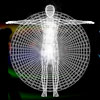Elements Of Personal Psychology
 by Ernest L. Norman
by Ernest L. Norman
Let us, at this time, enter into a discussion on some of the elements of personal psychology. Sometime ago, while  walking upon one of my garden paths, I inadvertently startled a mother bird who was nesting nearby in the bushes. The frightened bird flew out of the bush, where her nest was situated and tried, by the age-old ruse of dragging her wing and limping, to lead me away from this most treasured spot; she tried to impress me with the fact that perhaps she was crippled so that I would pursue her. This, of course, is a well-known and very obvious device which has been used by birds and animals as long as they have existed. However, as I walked away from the spot, I could not help but muse that the countless millions of people who had inhabited planet earth and who are living at the present time, are all to some extent, practicing this same old device of deception which had been used by animals and birds for so many countless ages.
walking upon one of my garden paths, I inadvertently startled a mother bird who was nesting nearby in the bushes. The frightened bird flew out of the bush, where her nest was situated and tried, by the age-old ruse of dragging her wing and limping, to lead me away from this most treasured spot; she tried to impress me with the fact that perhaps she was crippled so that I would pursue her. This, of course, is a well-known and very obvious device which has been used by birds and animals as long as they have existed. However, as I walked away from the spot, I could not help but muse that the countless millions of people who had inhabited planet earth and who are living at the present time, are all to some extent, practicing this same old device of deception which had been used by animals and birds for so many countless ages.
 Of course, these people for the most part, did not know they were using some sort of deception and no doubt would have been quite surprised and perhaps even angered had this most obvious fact been pointed out to them. It is a provable and foregone conclusion that all people in the world do, at some time or other — some more frequently than others — revert to forms of very obvious subconscious deception. In this manner they hope to detract attention from some deeply rooted subconscious insecurity complexes derived from unresolved past lifetime experiences and from the time they were born into the world up to the present moment, as a natural product of evolution. The sum and total of these insecurities would, of course, largely determine just how much deception and how obvious was the deceptive device being used by any particular person.
Of course, these people for the most part, did not know they were using some sort of deception and no doubt would have been quite surprised and perhaps even angered had this most obvious fact been pointed out to them. It is a provable and foregone conclusion that all people in the world do, at some time or other — some more frequently than others — revert to forms of very obvious subconscious deception. In this manner they hope to detract attention from some deeply rooted subconscious insecurity complexes derived from unresolved past lifetime experiences and from the time they were born into the world up to the present moment, as a natural product of evolution. The sum and total of these insecurities would, of course, largely determine just how much deception and how obvious was the deceptive device being used by any particular person.
Typical of these various devices are such attitudes as can be called subtle or strong exhibitions wherein any person 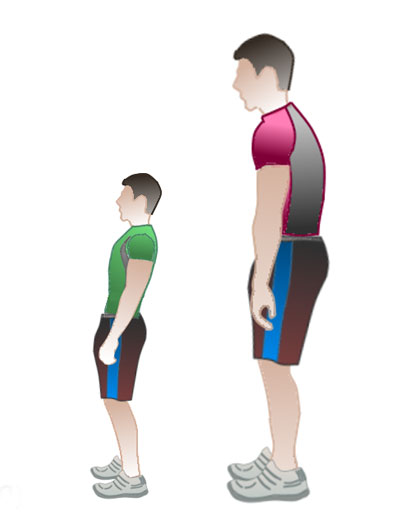 attempts, by bragging, by various other exploitations, or expressions, to try to succeed in impressing his fellow man with what he considers to be the most obvious virtues of his own ego. Proverbially, the small, short man is known to puff himself out, to strut, or to otherwise try to portray, ostentatiously, a much greater degree of physical and mental prowess, in lieu of the obvious difference in his stature. The same, in reverse, is true with the tall, thin individual who tries to make himself, subconsciously speaking, a little shorter by stooping, by drawing in his chest, and assuming some sort of an introverted attitude. In either case, where we consider the more ostentatious display — the extroverted form of ego, or the introverted form — these are devices in which the individual is attempting to divert attention from the sense of insecurity which, subconsciously, he knows he has — the sum and total of various unresolved insecurities from which he has suffered in his lifetime.
attempts, by bragging, by various other exploitations, or expressions, to try to succeed in impressing his fellow man with what he considers to be the most obvious virtues of his own ego. Proverbially, the small, short man is known to puff himself out, to strut, or to otherwise try to portray, ostentatiously, a much greater degree of physical and mental prowess, in lieu of the obvious difference in his stature. The same, in reverse, is true with the tall, thin individual who tries to make himself, subconsciously speaking, a little shorter by stooping, by drawing in his chest, and assuming some sort of an introverted attitude. In either case, where we consider the more ostentatious display — the extroverted form of ego, or the introverted form — these are devices in which the individual is attempting to divert attention from the sense of insecurity which, subconsciously, he knows he has — the sum and total of various unresolved insecurities from which he has suffered in his lifetime.
Sometimes, however, these insecurity complexes exert themselves  much more strongly and in different forms and manners. A person may become an extrovert to the extent that he will be an actor or she will become an actress; and again people often enter the field of politics, or such professions as teaching, the clergy, or the priesthood; in fact, any and all walks and occupations of life have these, either introverted or extroverted persons who are attempting to conceal and to divert by the obvious aforementioned devices, the attention of their subconscious feelings of insecurity which arise from these insidious complexes. Then, too, we cannot fail to consider the more extreme cases where an individual can actually become a dangerous criminal, or even a person who assumes such strength and power that he becomes an emperor or a king. Hitler was one of these extroverted persons. It is well known, biographically speaking, that Hitler suffered a tremendously introverted childhood.
much more strongly and in different forms and manners. A person may become an extrovert to the extent that he will be an actor or she will become an actress; and again people often enter the field of politics, or such professions as teaching, the clergy, or the priesthood; in fact, any and all walks and occupations of life have these, either introverted or extroverted persons who are attempting to conceal and to divert by the obvious aforementioned devices, the attention of their subconscious feelings of insecurity which arise from these insidious complexes. Then, too, we cannot fail to consider the more extreme cases where an individual can actually become a dangerous criminal, or even a person who assumes such strength and power that he becomes an emperor or a king. Hitler was one of these extroverted persons. It is well known, biographically speaking, that Hitler suffered a tremendously introverted childhood.
Unfortunately, in almost all cases, people who are so introverted or extroverted fail to recognize the symptoms within themselves; they fail to analyze or take suitable action whereby they could hope to attain solvency from these 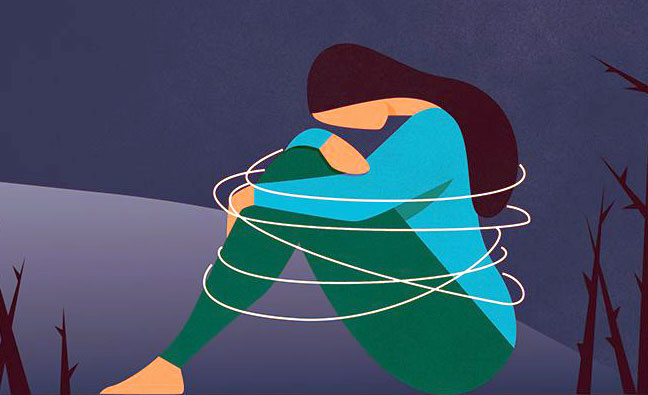 various psychic differences which lie deep within the subconscious portion of the psychic anatomy. So long as these numerous inadvertent or malformed wave forms exist, and while they may not oscillate to the exterior surface of the conscious mind, they, nevertheless, do exert a strong and pernicious effect upon the varied oscillations which are currently expressed. This gives rise to the many deficiencies or otherwise plainly exhibited forms of this most familiar of all subconscious behavior, the insecurity complex. No individual can ever hope to achieve supreme control or dominance over these countless subversive forms of consciousness which thus exist. For, as rapidly as they are cancelled out, the processes of life very often give rise to new forms, and subsequent developments of new inferiority or insecurity complexes.
various psychic differences which lie deep within the subconscious portion of the psychic anatomy. So long as these numerous inadvertent or malformed wave forms exist, and while they may not oscillate to the exterior surface of the conscious mind, they, nevertheless, do exert a strong and pernicious effect upon the varied oscillations which are currently expressed. This gives rise to the many deficiencies or otherwise plainly exhibited forms of this most familiar of all subconscious behavior, the insecurity complex. No individual can ever hope to achieve supreme control or dominance over these countless subversive forms of consciousness which thus exist. For, as rapidly as they are cancelled out, the processes of life very often give rise to new forms, and subsequent developments of new inferiority or insecurity complexes.
 So far as the present existing insecurity complexes are concerned, the individual who is attempting to attain a better way of life and to free himself from some of the mental and physical vicissitudes, which most necessarily accompany any person who is not primarily concerned with the innermost functioning or workings of his subconscious nature, must attempt, at all times, to keep close watch over his various emotional differences which may arise; he must display a plain and evident concern and awareness of the many propensities of subconscious workings which are going on within the deep recesses of the psychic anatomy.
So far as the present existing insecurity complexes are concerned, the individual who is attempting to attain a better way of life and to free himself from some of the mental and physical vicissitudes, which most necessarily accompany any person who is not primarily concerned with the innermost functioning or workings of his subconscious nature, must attempt, at all times, to keep close watch over his various emotional differences which may arise; he must display a plain and evident concern and awareness of the many propensities of subconscious workings which are going on within the deep recesses of the psychic anatomy.
In this respect we can refer to one of those classical bits of philosophy; “evil is in the eye of the beholder.” It is sufficient to say that anyone who feels more than the ordinary or temporal sense of distress or emotion, should such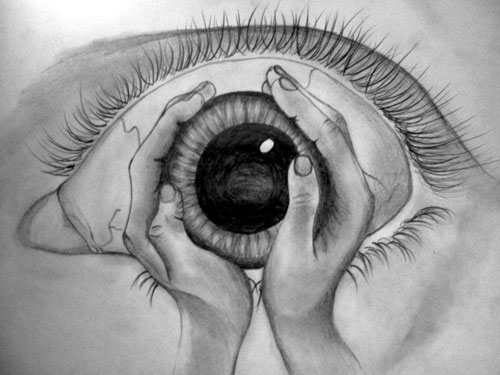 forms and expressions reassert themselves in a continuous fashion; or should there be a habitual train-like consequence of varied emotional differences or obvious habit conformities, which so clearly indicate that this subversive form of subconscious interplay is in constant or periodic activation, must realize that it is high time something constructive was being done to eliminate this condition. We cannot overlook the obvious facts of reality and assume or adopt a pollyanna attitude and decry that which some metaphysical concepts try to teach us to do; we cannot merely shrug off the reality of some particular annoying circumstance or some happening which may have an emotional value to us. Such things do exist and always present the immediate conformity of reality.
forms and expressions reassert themselves in a continuous fashion; or should there be a habitual train-like consequence of varied emotional differences or obvious habit conformities, which so clearly indicate that this subversive form of subconscious interplay is in constant or periodic activation, must realize that it is high time something constructive was being done to eliminate this condition. We cannot overlook the obvious facts of reality and assume or adopt a pollyanna attitude and decry that which some metaphysical concepts try to teach us to do; we cannot merely shrug off the reality of some particular annoying circumstance or some happening which may have an emotional value to us. Such things do exist and always present the immediate conformity of reality.
However, the point in question here is within ourselves, how much of this emotion remains and reconstitutes an activated resurgence of emotion within our own particular consciousness; these emotional vicissitudes so reinstate 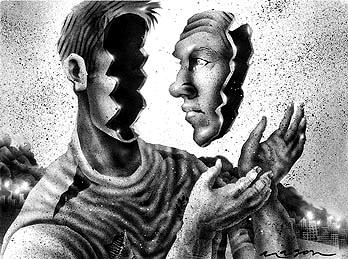 various other habit or mental conformities which are so classically distinguished by a psychological approach, or by an analyst who can learn to distinguish these various differences as they are displayed upon the surface of human consciousness. Self analysis, by any individual is indeed dangerous, unless it can be done completely honestly and objectively, without the taint of personal conformities entering into such judgments of jurisdictions or objectivisms, which any person may attain in his self-analysis. This honest approach of self-analysis is extremely difficult to attain, and more so because the immediate demands of any objective analysis centers upon one pertinent fact which is this: how well you can objectify, within your own mind, that it is you yourself as an individual, who is involved in this emotion; who is involved in this consequence, or this extrusion of consciousness which has so complicated your life. It does not, in a more abstract sense, exist outside the dimension of reality, as it presents itself in consciousness to you individually.
various other habit or mental conformities which are so classically distinguished by a psychological approach, or by an analyst who can learn to distinguish these various differences as they are displayed upon the surface of human consciousness. Self analysis, by any individual is indeed dangerous, unless it can be done completely honestly and objectively, without the taint of personal conformities entering into such judgments of jurisdictions or objectivisms, which any person may attain in his self-analysis. This honest approach of self-analysis is extremely difficult to attain, and more so because the immediate demands of any objective analysis centers upon one pertinent fact which is this: how well you can objectify, within your own mind, that it is you yourself as an individual, who is involved in this emotion; who is involved in this consequence, or this extrusion of consciousness which has so complicated your life. It does not, in a more abstract sense, exist outside the dimension of reality, as it presents itself in consciousness to you individually.
Excerpt from Infinite Perspectus
Part II coming soon.
Posted in Book Excerpts, Infinite Perspectuswith comments disabled.


